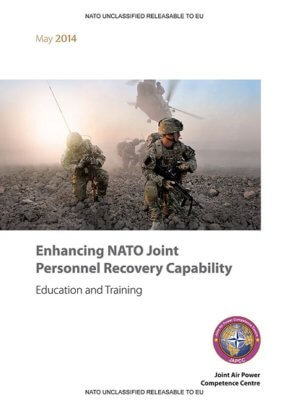Overview
As we prepare for the future, it is critical that NATO and its nations capture the lessons identified from recent crisis response and combat operations. Turning these into lessons learned as we transition from NATO in operations to NATO prepared for operations is paramount. This transition combined with the on-going financial crisis makes it certain that investment in future Air Power capabilities will be under heavy scrutiny. It is thus critical for NATO and its nations to actively investigate, develop and promulgate their vision for Air and Space Power for the future. Proactive and collective planning will be absolutely essential to ensure the necessary capabilities and force readiness are available to provide a decisive advantage in future Alliance operations.
Executive Summary
‘The isolation, capture and / or exploitation of NATO personnel during operations could have a significant negative impact on operational security, morale of assigned forces and public support.’
This sentence clearly states the risks faced during an isolation event and explains why great effort must be made in order to minimize those risks.The protection of the Force has become an increasingly important responsibility for the Operational Commander. The importance of a structured approach and the need for coordinated measures to ensure and protect the safety of forces involved in armed conflict or humanitarian missions has been recalled in the UN General Assembly Resolution 61 / 133 on Safety and Security of Humanitarian Personnel and Protection of UN Personnel, dated 1 March 2007. The UN resolution addresses concerns and reaffirms the need for adequate level of safety and security for its humanitarian personnel employed in operations. Furthermore, it requests to continue promoting the cooperation and collaboration amongst UN departments, for planning and implementation of security measures, training and awareness of personnel. The idea that force protection should be an essential part of overall Command responsibilities constitutes the foundation for the development of this study with regard to JPR.
As primary means to assure the security of the Force in Operation, JPR is a key enabler.
JPR being a key enabler has been demonstrated by many operational activities carried out under national or multinational / NATO command.
The need for NATO to establish a solid JPR System is strongly supported by the requirement to assure the protection of the force during every operation. Consequently, the implementation of a solid JPR System will minimize the risks related to the possible negative impact.
In order to initiate the required changes to overcome the gaps that are presently stopping the NATO JPR development, it is recommended that the NATO approach to JPR move toward a more top-down leading direction.







